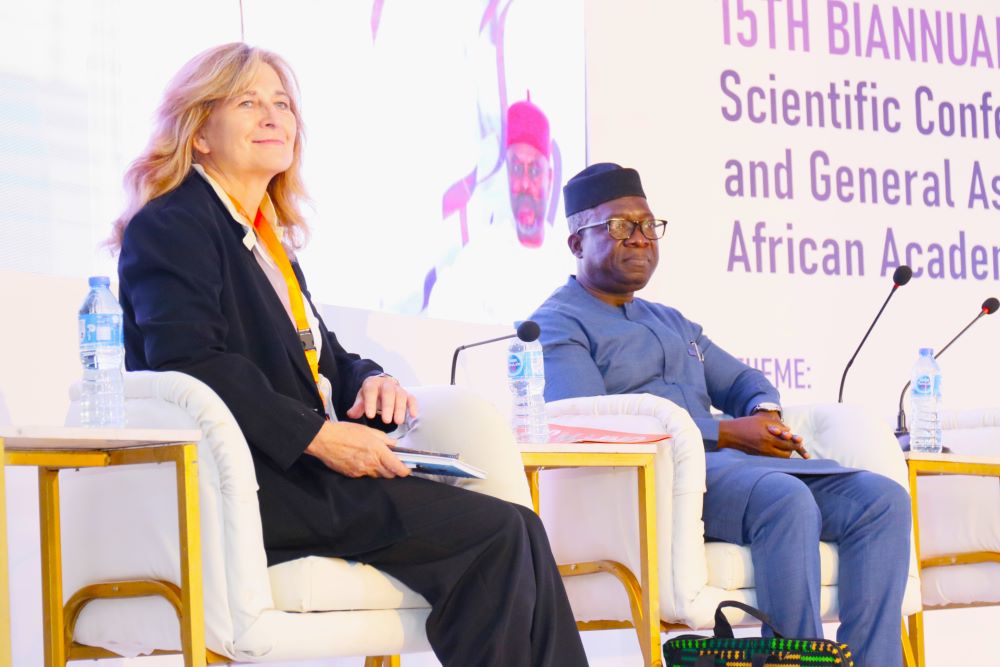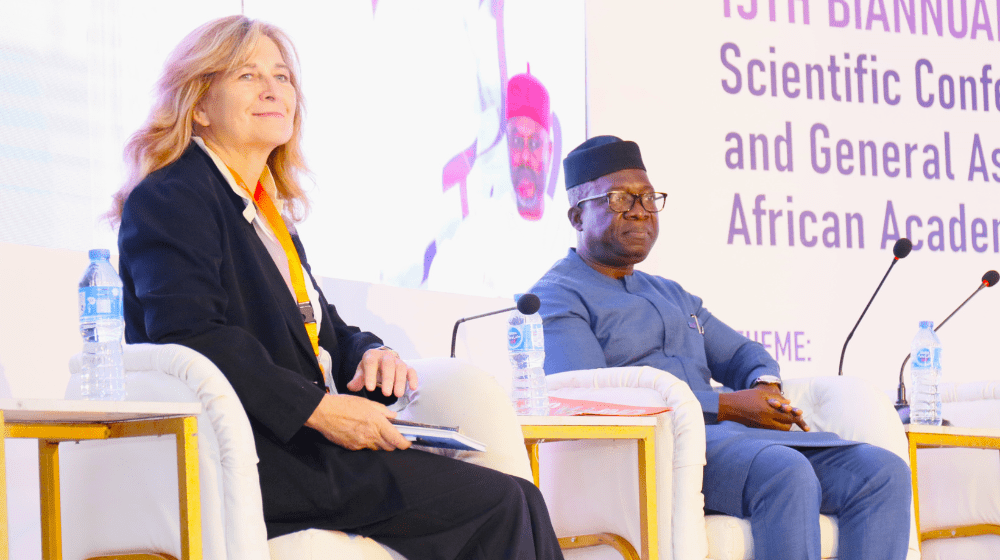Urgent, science-driven efforts are essential to address Africa’s reproductive health challenges, according to Dr. Sennen Hounton, UNFPA’s Regional Director for West and Central Africa. Speaking at the 15th General Assembly and Scientific Conference of the African Academy of Sciences (AAS), held in Abuja, Nigeria, from December 8 to 11, 2024, under the theme "Empowering and Advancing Africa’s Scientific Enterprise" Dr. Hounton emphasized the need for accelerated action to achieve transformative results in maternal health, family planning, and child marriage by 2030.
The United Nations Population Fund (UNFPA) joined the conference as a sponsor, leveraging the platform to advocate for evidence-based solutions to Africa’s reproductive health challenges.
The Regional Director delivered a presentation during the panel discussion “Scaling up the Achievement of the Reproductive Health Three Zeros in Africa” that shed light on the urgent need for accelerated progress in achieving UNFPA’s transformative goals: zero unmet need for family planning, zero preventable maternal deaths, and zero gender-based violence and harmful practices.
Dr. Hounton shared sobering data underscoring the region’s reproductive health challenges. Maternal mortality in West and Central Africa remains alarmingly high, with 1 maternal death occurring every 4 minutes and 1 newborn death every 17 seconds in the region. Achieving the target of one maternal death per 100,000 live births by 2030 would require a 54-fold acceleration in progress.
Similarly, progress toward insuring pregnancy remain a choice and not a chance is very low and uneven, and achieving the target of 1% unmet need by 2030 would require an 82-fold acceleration in efforts.
On child marriage, Dr. Hounton highlighted declining prevalence rates between 1994 and 2020, with setbacks observed during 2007–2015. However, the number of new child brides continues to rise due to population increases. Reaching the target of 1% child marriage by 2030 demands a 45-fold acceleration.
Dr. Hounton stressed the importance of integrating scientific evidence into policymaking and programming to meet these ambitious goals. “To transform the lives of women and girls, we must embrace the power of science, innovation, and partnerships,” he stated. “Only by scaling up proven solutions and fostering collaboration across sectors can we address these critical challenges and achieve sustainable development.”

UNFPA’s sponsorship and active participation in the AAS conference underscored its commitment to leveraging science and innovation to advance reproductive health and empower communities. This is in line with establishment of the Lancet Commission on 21st- Century Global Health Threats, which is co-chaired by our Executive Director Dr Natalia Kanem and Professor Christopher Murray, Director of the Institute for Health Metrics and Evaluation. The goal of the Commission is to identify the factors and themes with the greatest potential impact on health through 2050 and beyond, as well as to identify common strategies that can be used to mitigate risk at the national, regional, and international levels.
“Our work with the UNFPA has shown the members of the Academy to be a dependable, trustworthy, and valuable partner that uses its full force of experience and expertise to dive deeply into finding ways to resolve multifaceted social challenges. This approach has thrown up the UNFPA to be one of the most impactful organizations supporting the field of sexual and reproductive health and rights and the development of women not only in Africa, but globally,” said Friday Okonofua, Professor Emeritus of Obstetrics and Gynecology, and Reproductive Health, at the University of Benin; and Secretary General, African Academy of Sciences, and Chairman, Board of Trustees, Women's Health and Action Research Centre (WHARC), Benin City. Nigeria.


